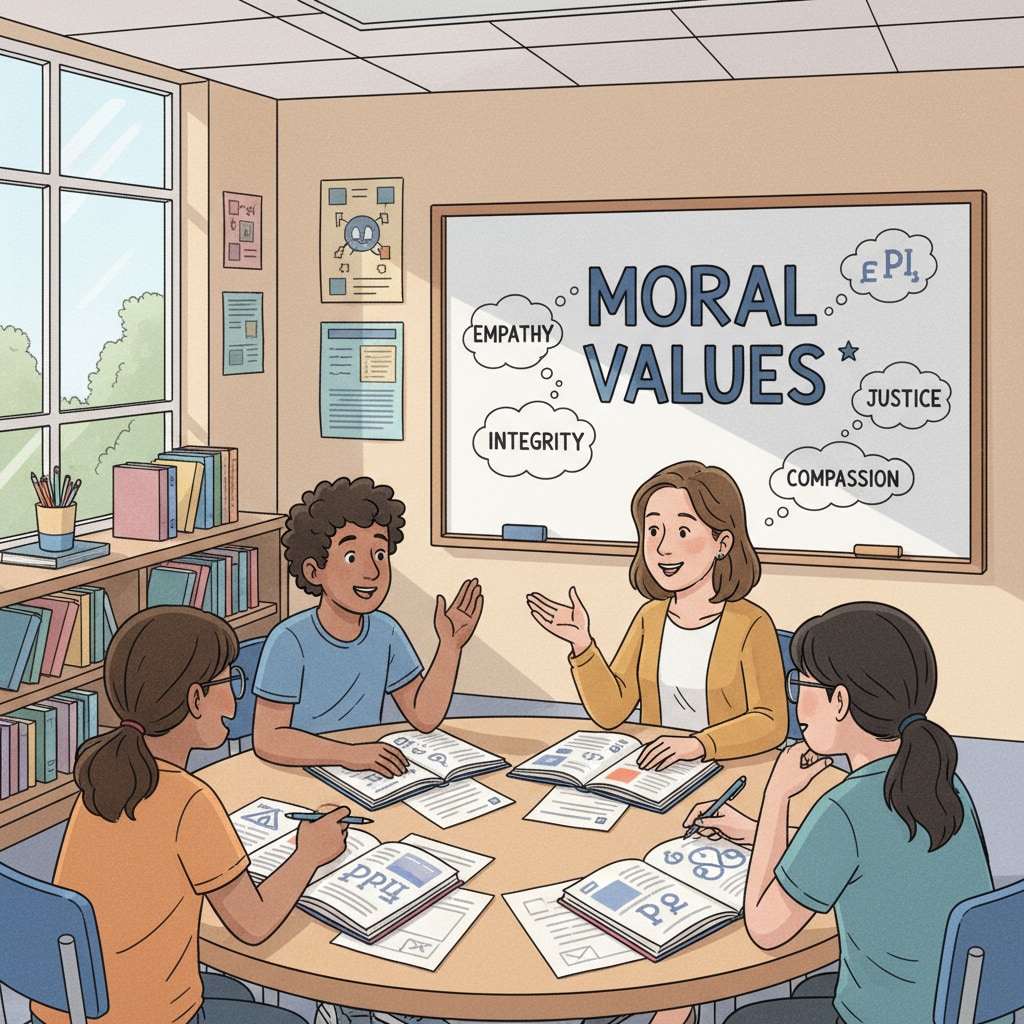Moral philosophy, ethics, empathy, and education are intertwined elements that play a pivotal role in shaping a harmonious society. In an era where self-centeredness seems to be on the rise, incorporating moral philosophy and ethics into the K12 education system has emerged as a fundamental approach to nurturing empathetic individuals. These empathetic citizens, in turn, contribute to the moral development and overall well-being of society.

The Need for Moral Philosophy in K12 Education
K12 education is the foundation upon which a child’s understanding of the world is built. By introducing moral philosophy at this stage, we can help students develop a framework for making ethical decisions. Moral philosophy provides the tools to analyze complex moral issues, such as fairness, justice, and human rights. For example, studying the works of philosophers like Plato and Aristotle can expose students to different perspectives on what it means to live a good life. This exposure broadens their thinking and helps them see beyond their own immediate interests.
Fostering Empathy through Ethical Education
Ethical education is not just about memorizing rules; it’s about cultivating empathy. When students learn about different ethical theories and case studies, they are encouraged to put themselves in others’ shoes. This process of perspective-taking is at the heart of empathy. For instance, exploring real-life ethical dilemmas, such as those related to environmental conservation or poverty alleviation, can make students more aware of the impact of their actions on others. As a result, they become more likely to act in ways that consider the well-being of the broader community.

Moreover, ethical education can also enhance students’ emotional intelligence. By understanding the ethical implications of their emotions and the emotions of others, students are better equipped to handle social situations with sensitivity and understanding. This emotional intelligence further strengthens their ability to empathize with those around them.
In conclusion, moral philosophy, ethics, empathy, and education are inseparable. Integrating moral philosophy and ethics into K12 education is not only beneficial for individual students but also essential for the development of a more empathetic and harmonious society. As we strive to shape the minds of the next generation, let us remember the power of moral education in cultivating tomorrow’s conscience. Moral Philosophy on Wikipedia Moral Philosophy on Britannica
Readability guidance: The article uses short paragraphs and lists to summarize key points. Each H2 section provides relevant explanations. The proportion of passive voice and long sentences is controlled, and transition words are scattered throughout the text to enhance readability.


